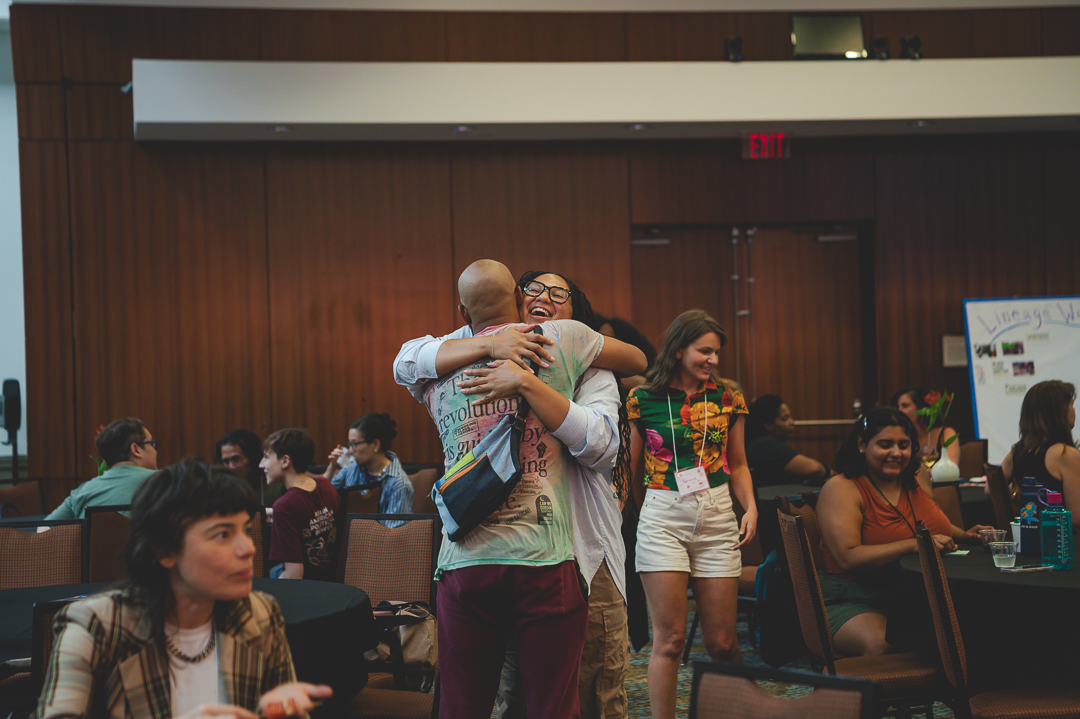When we launched ReFrame in 2015, we had one mission in mind: to develop the next generation of strategic communicators — leaders rooted in grassroots movements who understand how to shape and control the narrative and stories about the issues they work on and, equally importantly, have the strategic thinking and skills to do so. For too long, we have seen how organizations and movements treat communications as an afterthought. On the opposite end of the spectrum, some organizations and leaders engage in magical thinking when it comes to communications work, believing that isolated tactics alone can lead to transformational shifts. (A “viral” video, a slick new microsite — sound familiar to anyone?)
Both kinds of thinking need to change. At ReFrame, we believe that this work requires a three-pronged approach:
- Training individual communicators in strategic communications;
- Supporting organizations’ ability to integrate strategic communications as a core strategy; and
- Strengthening the ability of organizations to increase the strategic capacity of entire networks, sectors, and movements in which they operate.
Since our launch, we have trained 33 mentees from organizations working on some of the most pressing issues of our time — from immigrant rights to the movement for Black lives, climate change to workers’ rights. Three years in, we’ve learned some important lessons. We offer up what we’ve learned as a reminder to all of us that investing in strategic communications capacity can lead not only to campaign victories — it can shift the terrain that we work on, tilling the soil for long-term, transformational change. At a time when we are witnessing the resurgence of right-wing movements, this work is even more critical.
1. Training and mentorship is key — and investing in both can lead to major wins.
“Before ReFrame, I didn’t have a sense of what strategic communications was. Now I know enough to know what bad or non-strategic communications looks like. Now that I have this awareness, I can help cultivate and institutionalize an organization-wide sensibility around this. I now have a strategic communications lens in my head, and there is no turning back.”
— Clarke Gocker, PUSH Buffalo
“ReFrame has been an experience of a lifetime that taught me a lot of lessons about communications strategy. Got Green is now in more control of the climate narrative in Seattle.”
— Hodan Hassan, Got Green
At ReFrame, we train mentees in everything from how to gain the right kind of press coverage to ways to use new communications and digital tools to higher-level strategies on how to shift the underlying narratives that shape issue environments. At the end of the program, all of our mentees reported they had deepened their understanding of communications strategy and felt more confident in developing and implementing tactics and strategy.
Here are just a few examples of the work that our mentees led, with the support of ReFrame:
- At BYP100, we supported mentee L’lerrét Jazelle Ailith, who developed and ran a communications strategy for “Freedom Now,” a national day of action that focused attention on the need to divest from police departments and invest in communities. This work led to high-profile press coverage, introducing a transformative demand into the debate around police accountability and reform.
- In the Twin Cities, our mentee Stephanie Gasca at Centro de Trabajadores Unidos en La Lucha (CTUL) played a leading role in crafting communications strategy for the coalition that successfully pushed for expansive paid sick days legislation.
- And in California, ReFrame mentees at several domestic worker organizations helped guide the communications work that led to winning permanent protections for domestic workers, as a prior bill was about to sunset.
2. By shifting dominant narratives, we strengthen our capacity to win and set ourselves up for long-term victories.
“Before ReFrame, I wasn’t sure if it was possible to reframe our narratives, but [as an organizer] going through the process from a communications standpoint has made me realize that comms is just as important [as organizing], because it plays a major role in tilling the soil to change our narrative.”
—Stephanie Gasca Centro de Trabajadores Unidos en Lucha
Too often, we think of communications work as holding press conferences and accumulating media hits. But when we integrate an “upstream” communications strategy — in the form of reframing the debate, counter-narratives and tailored audience targeting — we can shift the advantage away from opponents and shift the narrative, setting us up for long-term victories.
Here’s one example: By the end of summer 2016, California Governor Jerry Brown had signed six climate justice bills into law — and according to mentee Kay Cuanjuco of the California Environmental Justice Alliance (CEJA), these bills might not have passed without integrating communications with organizing.
Before ReFrame, CEJA was strong on tactics, such as developing visuals and videos to carry their messages. But with ReFrame support, CEJA developed a larger strategy that included narrative analysis, development of a counter-narrative, and audience segmentation that moved a common story and ensured their visuals, videos, op-eds, and earned media reached the people they most needed to sway.
As a result, they succeeded in lifting up stories and solutions from communities working on climate issues at the grassroots level, making the argument that these programs could benefit from more state support to bring them to scale — precedent-setting policy change for environmental and climate justice and a win-win for impacted communities and for California.
3. The progressive movement needs a deep and long lasting investment in strategic communications capacity at the organizational and networked level in order to win.
Over the past several years, we have seen the growth of a vibrant, creative, grassroots civil rights movement, from the movement for Black Lives to Not1More to the resistance at Standing Rock. And we have seen how quickly those gains can be halted by a powerful and emboldened far-right movement. How do we move forward?
More than ever, ReFrame is committed to responding to the needs of our movements and to contributing to the development of a robust progressive communications ecosystem. We must move forward in a new way, in order to defend our gains and advance visionary narratives that reframe what is possible, even in the hardest of times.
We are ready to expand our work as part of the solution. Join the next generation of strategic communicators and help build the capacity of our movements to not only win, but to shift the boundaries of what’s possible. Join ReFrame: http://www.reframementorship.org/apply-now.html







































.jpeg)


.png)

%20(1).png)




























